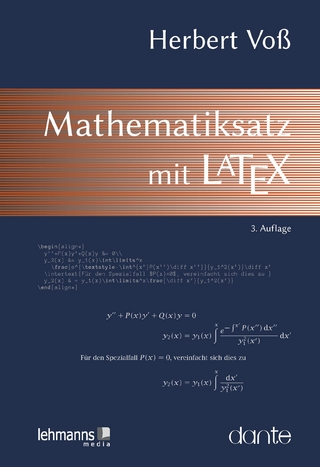
Compilers and Operating Systems for Low Power
Springer-Verlag New York Inc.
978-1-4020-7573-5 (ISBN)
This work will be of interest to researchers in the areas of low-power computing, embedded systems, compiler optimizations, and operating systems.
1 Low Power Operating System for Heterogeneous Wireless Communication System.- 1 Introduction.- 2 Event-driven versus General-purpose OS.- 3 Low Power Reactive OS for Heterogeneous Architectures.- 4 Conclusion and Future Work.- References.- 2 A Modified Dual-Priority Scheduling Algorithm for Hard Real-Time Systems to Improve Energy Savings.- 1 Introduction.- 2 Dual-Priority Scheduling.- 3 Power-Low Modified Dual-Priority Scheduling.- 4 Experimental Results.- 5 Summary.- References.- 3 Toward the Placement of Power Management Points in Real-Time Applications.- 1 Introduction.- 2 Model.- 3 Sources of Overhead.- 4 Speed Adjustment Schemes.- 5 Optimal Number of PMPs.- 6 Conclusion.- Appendix: Derivation of Formulas.- References.- 4 Energy Characterization of Embedded Real-Time Operating Systems.- 1 Introduction.- 2 Related Work.- 3 System Overview.- 4 Characterization Strategy.- 5 RTOS Characterization Results.- Summary of Findings.- Conclusions.- References.- 5 Dynamic Cluster Reconfiguration for Power and Performance.- 1 Motivation.- 2 Cluster Configuration and Load Distribution.- Methodology.- Experimental Results.- Related Work.- Conclusions.- References.- 6 Energy Management of Virtual Memory on Diskless Devices.- 1 Introduction.- 2 Related Work.- 3 Problem Formulation.- 4 EELRM Prototype Compiler.- 5 Experiments.- 6 Future Work.- 7 Conclusion.- References.- 7 Propagating Constants Past Software to Hardware Peripherals on Fixed-Application Embedded Systems.- 1 Introduction.- 2 Example.- 3 Parameters in Cores.- 4 Propagating Constants from Software to Hardware.- 5 Experiments.- 6 Future Work.- 7 Conclusions.- References.- 8 Constructive Timing Violation for Improving Energy Efficiency.- 1 Introduction.- 2 Low Power via Fault-Tolerance.- 3 Evaluation Methodology.- 4 Simulation Results.- 5 Related Work.- 6 Conclusion and Future Work.- References.- 9 Power Modeling and Reduction of VLIW Processors.- 1 Introduction.- 2 Cycle-Accurate VLIW Power Simulation.- 3 Clock Ramping.- 4 Experimental Results.- 5Conclusions and Discussion.- References.- 10 Low-Power Design of Turbo Decoder with Exploration of Energy-Throughout Trade-off.- 1 Introduction.- 2 Data Transfer and Storage Exploration Methodology.- 3 Global Data Flow and Loop Transformations.- 4 Storage Cycle Budget Distribution.- 5 Memory Organization.- 6 Conclusions.- References.- 11 Static Analysis of Parameterized Loop Nests for Energy Efficient Use of Data Caches.- 1 Introduction.- 2 Energy and Line Size.- 3 Background.- 4 The Parameterized Loop Analysis.- 5 STAMINA Implementation Results.- 6 Summary and Future Work.- References.- 12 A Fresh Look at Low-Power Mobile Computing.- 1 Introduction.- 2 Architecture.- 3 Handover and the Quantization of Computational Resources.- 4 Segmentation of Functionality: The XU-MS Split.- 5 Status and Research Vision.- References.
| Zusatzinfo | XXII, 223 p. |
|---|---|
| Verlagsort | New York, NY |
| Sprache | englisch |
| Maße | 155 x 235 mm |
| Themenwelt | Mathematik / Informatik ► Informatik ► Betriebssysteme / Server |
| ISBN-10 | 1-4020-7573-1 / 1402075731 |
| ISBN-13 | 978-1-4020-7573-5 / 9781402075735 |
| Zustand | Neuware |
| Haben Sie eine Frage zum Produkt? |
aus dem Bereich


